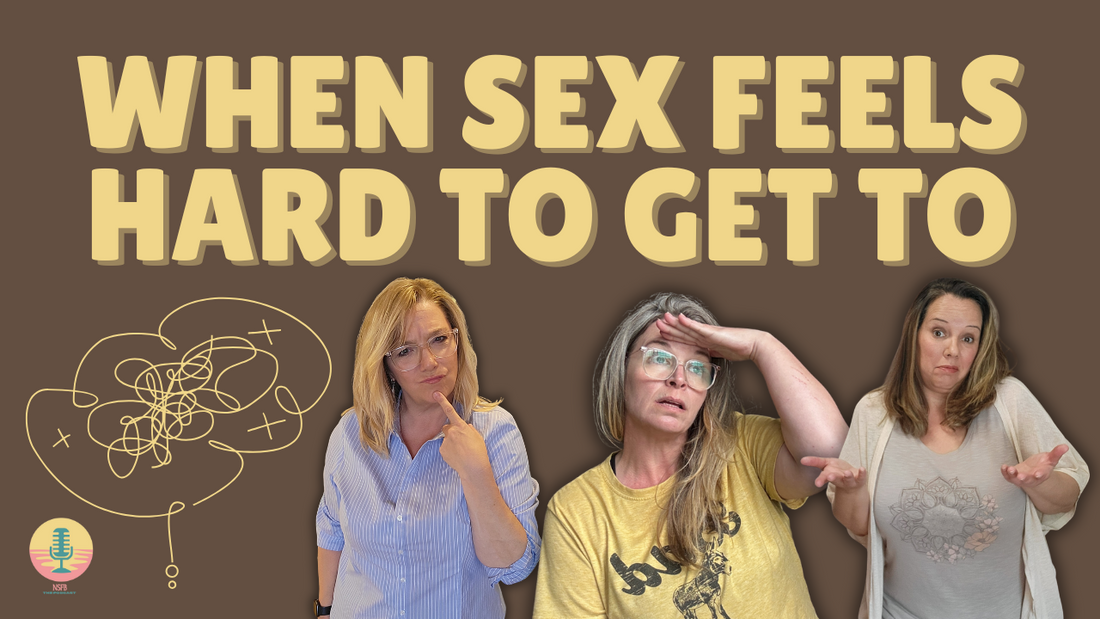
Managing ADHD's Impact on Sex: Real Conversations and Solutions
Share
When your brain has too many tabs open and intimacy becomes a struggle, it's time to explore how Attention Deficit Hyperactivity Disorder (ADHD) influences our personal relationships. October is ADHD Awareness Month, and there's no better time to delve into the complexities of mental load, executive dysfunction, and neurodivergence and how they affect intimacy. Let's tackle these challenges and discover ways to maintain healthy connections.
Understanding ADHD's Impact on Intimacy
ADHD can make it difficult to shift gears from everyday stressors to romance. Known as executive dysfunction, this challenge makes transitioning from task-focused thought to romantic engagement a struggle. The mental load of juggling responsibilities—work, family, hobbies, friendships—can deprioritize intimacy, despite the desire being there.
Another ADHD symptom, time blindness, can lead to missed opportunities for intimacy. Whether you're hyper-focused or losing track of time, this can affect how and when intimacy occurs. Additionally, impulsivity may result in sudden urges that can be confusing for partners.
Challenges in Relationships
ADHD doesn't only affect the individual but significantly impacts their relationships. Partners can misinterpret ADHD behaviors as disinterest or emotional distance, which can create a cycle of miscommunication and hurt feelings. Rejection sensitivity is also common, where the fear of hearing 'no' prevents initiation, culminating in a feedback loop of avoidance and shame.
Even non-ADHD partners might recognize these patterns, but it’s crucial to identify that these aren't exclusive to ADHD. However, understanding each other's needs and having open conversations can alleviate these misinterpretations and strengthen the relationship.
Effective Communication and Mutual Understanding
Communication plays a pivotal role in navigating intimacy alongside ADHD. Discussing relationship expectations and how ADHD traits manifest can help bridge understanding gaps. Partners need to consider each other's perspectives; what one interprets as distraction, the other might see as an ADHD symptom.
Having conversations in neutral or positive moments, rather than when emotions run high, often leads to more effective communication. Evaluating what feels normal for both partners, and adapting as necessary, is fundamental to maintaining balance and satisfaction in the intimate relationship.
ADHD-Friendly Intimacy Strategies
Transforming intimate moments can start with simple, practical steps:
- Transition Rituals: Implement rituals that signal a shift to intimate time. Engage in responsive desire by refreshing instead of waiting for spontaneous urges.
- Externalize the Load: Writing down tasks helps close mental tabs, freeing mental space for intimacy.
- Micro Moments Count: Intimacy need not be a marathon. Short, impromptu moments maintain connection and cater to busy schedules.
- Embrace Playfulness: ADHD traits such as creativity and hyper-focus can bring novelty and fun into relationships, leveraging these as strengths can enhance intimacy.
-
Use Supportive Products: Incorporate products that aid in physical readiness, allowing you to engage in intimate moments even when your body isn’t immediately responsive.
Conclusion
Feeling overwhelmed by an open world of mental tabs requires understanding, empathy, and strategic approaches to maintaining a fulfilling intimate life. Remember, both parties need patience and openness, and it’s essential to view ADHD as a different way of processing rather than a barrier to connection.
Your brain may be managing a large load, but by working with it instead of against it, intimacy can become a rewarding facet of your relationship. If you have stories or strategies that have worked for you, we’re eager to hear them. Share your experiences and keep the conversation going. Remember to save a tab for pleasure among the many open in your mind.
Grab your FREE ADHD reset digital download here!
